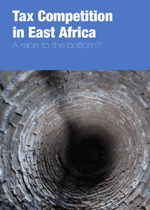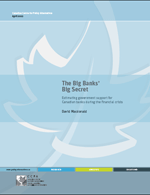News
Published on Mon, 2012-05-14 10:01
“The Internet should be governed on the principles of human liberty, equality and fraternity,” remarked six relevant civil society organizations on a statement addressed to the United Nations Commission on Science and Technology for Development (UN CSTD). The UN body will hold this Friday in Geneva a meeting on Enhanced Cooperation on Public Policy Issues Pertaining to the Internet.
|
Published on Thu, 2012-05-10 14:07

Co-Chair Kim Sook (center) at
the meeting in New York.
(Photo: IISD)
|
Government representatives have failed last week to reach consensus on “The future we want,” the global plan of action to be adopted next month by the UN Conference on Sustainable Development (Rio2012). The second round of informal negotiations on the draft outcome document, held at the United Nations headquarters in New York, saw intense debates and divides among delegates, who agreed to meet again for other five days of deliberations to bridge differences.
|
Published on Thu, 2012-05-10 14:04

UNEP headquarters in Nairobi,
Kenya. (Photo: UNEP)
|
With the Rio2012 Summit approaching, a preparatory meeting in New York last week discussed how to strengthen or create various institutions to deal with the three dimensions of sustainable development, wrote Martin Khor, executive director of South Centre, in his most recent column for The Star, one of the leading Malaysian newspapers, and the South North Development Monitor (SUNS).
|
Published on Thu, 2012-05-10 14:03
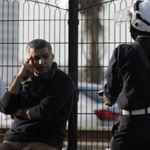
Arrest of Nabeel Rajab and other
activists on February.
(Photo: BCHR)
|
The International Federation for Human Rights (FIDH) stated this week its grave concern about the arrest of its deputy secretary general, Nabeel Rajab, and the continuing targeting of activists in Bahrain. On May 5th, Rajab, president of the Bahrain Center for Human Rights (BCHR), was arrested after arriving at Manama airport from Lebanon and is currently detained in Al Hawra police station.
|
Published on Thu, 2012-05-10 14:00
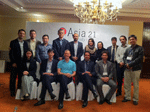
Meeting of the Afghanistan Youth
Leaders Initiative in Kabul.
(Photo: Asia Society)
|
The NATO Summit to be held later this month in Chicago “is unusual compared to previous summits as it will not reaffirm the allocation of more resources to its mission in Afghanistan, but the alliance will seek how to withdraw from a leading combat role in an increasingly unpopular decadelong war,” remarked the Afghanistan Young Leaders Initiative in a position paper issued last week.
|
Published on Thu, 2012-05-10 13:58
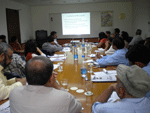
Photo: Social Watch India
|
Social Watch India organized two half-day workshops, the first on the Basic Capabilities Index (BCI) and the Gender Equity Index (GEI), and the second on National Minorities Commission.
|
Published on Mon, 2012-05-07 09:50

Waiting for gas in Dhaka,
Bangladesh. (Photo: Georges
Gobet/Newscom/IMF website)
|
The International Monetary Fund (IMF) approved a loan of one billion dollars to Bangladesh after two years of negotiation. The Equity and Justice Working Group (EquityBD), an alliance of right-based civil society organizations, has continuously and consistently protested it. This is the first loan that the Asian country has taken in seven years.
|
Published on Thu, 2012-05-03 09:59
Four members of the East African Community (EAC) are losing $2.8 billion each year for providing corporations with tax incentives that are anyway useless to attract foreign investments, according to a report issued by the Tax Justice Network-Africa and ActionAid. This trend is “depriving countries of critical resources needed for reducing poverty” and “dependence on foreign aid,” reads the study, focused on Kenya, Uganda, Tanzania and Rwanda and titled “Tax competition in East Africa: A race to the bottom?”
|
Published on Thu, 2012-05-03 09:57
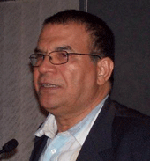
Abdullah Al-Deerezi.
|
Human rights activists welcomed this week a decision by Bahrain's highest court to order a retrial in the case of 21 men accused of “trying to overthrow the monarchy” and “having links to a foreign terrorist organization”.
|
Published on Wed, 2012-05-02 08:43
Throughout the 2008-2010 financial crisis, Canadian banks were touted by the government and the banks themselves as being very stable and that they needed no bailout. However, in reality, Canada’s banks received billions in cash and loan support during the 2008-2010 financial crisis—and the government has remained resolutely secretive about the details, according to a study released this week by the Canadian Centre for Policy Alternatives (CCPA, one of the focal points of Social Watch in that country).
|

|








